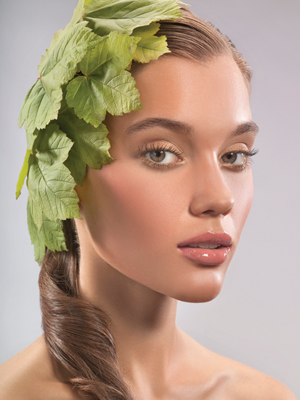Holistic professionals say their treatment programs are beginning to win the battle against acne, reducing the need for damaging and risky overprescribed go-to remedies.

According to research by acne.org.au, around 85 per cent of Australians suffer acne between 15 and 24, and are too often prescribed unpredictable drug Accutane or strong topical products containing benzoyl peroxide.
Kim Cheah, registered nurse and skin therapist at Brisbane’s Clinic Aesthetic combines medical knowledge with skin saviness, and believes there are more effective and less risky ways to treat acne that parents, teens and anyone suffering from acne should consider.
“I have had more success attacking acne from every angle; using products, treatments and lifestyle changes that work on eliminating pimples from the inside and the outside, and have fewer side effects,” Cheah said.
“A series of peels is my first step, followed by a home care regime including cleansing religiously morning and night, an enzyme scrub twice a week, a Vitamin B product for daytime and a Vitamin A product for night, switching to mineral makeup and adjusting your diet.
“Then, if after a few months, pimples are persisting, I’ve seen great results from a course of antibiotics prescribed by a GP or dermatologist in conjunction with continuing this skincare regime.
“Stay away from benzoyl peroxide – it was the big buzz word for treating pimples a few years ago, but in my experience, it makes things worse by drying the skin out which encourages your skin to produce more oil, thus creating more pimples.
Cheah believes Accutane should be an absolute last resort, and teens and parents need to realise that its side effects can be potentially just as socially and psychologically damaging as acne itself.
“Too many teens are on Accutane that simply don’t need to be and they’re suffering side effects like alopecia, before the drug has eliminated their acne. So then, already self-conscious teens are faced with pimples and hair loss which can be really damaging socially and psychologically.”
Dr Clare Rowe, educational and development psychologist has seen plenty of teens who are suffering low self esteem as a result of having acne, and urges parents to look out for the signs.
“Teens suffering from low self esteem as a result of acne tend to avoid eye contact, keep their head down and girls may grow their hair and/or wear heavy make up in an attempt to cover the acne,” Dr Rowe said.
“They are discovering who they are, their bodies are physically changing, personalities are evolving and a huge amount of weight is placed on the opinion of others – usually their peers.
“The impact of acne can mean withdrawal from social situations or avoidance from certain environments, taunts and teases form other peers, an inability to form new relationships, especially with the opposite sex, all leading to shy and even reclusive behaviour.”
Marketing expert David Welzman, 34, knows firsthand that the psychological effects of suffering acne as a teen can continue manifesting throughout adulthood.
“I had bad acne when I was a teen… it has affected me socially and left me with no confidence, and I still feel it today,” Welzman said.
“I certainly have had depression issues… having acne as a teen can affect you throughout your adult life as well – I wouldn’t wish it on anyone.
“I fought the battle against depression and thankfully won, and acne treatments are much better than they were even 10 to 15 years ago, so today's teens hopefully won’t have as much of a struggle.'
Cheah believes that with medical and skincare advancements there’s every chance for modern teens to prevent acne from having such a damaging long term effect, and encourages parents and teens to educate themselves on the different options, risks and side effects.
“Try less extreme alternatives first,” Cheah recommends, “and if after six months, you’ve seen no results, then look at your next option.”

